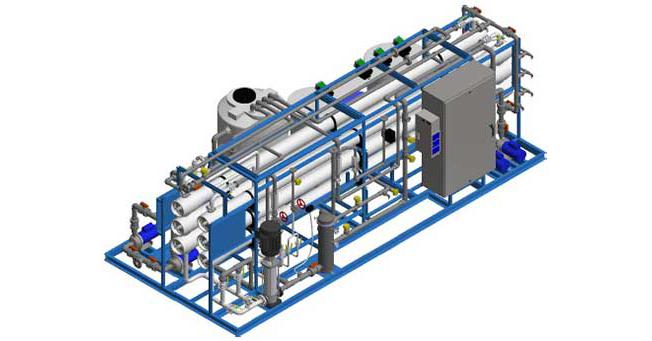Introduction

Water is a crucial element that sustains life on earth. While water is readily available to most people, the quality of water varies from place to place. Some regions have access to clean and pure water, while others have to rely on filtration systems to make their water potable. In cases where water pollution is high, reverse osmosis systems come in handy to filter out impurities, making water safe for human consumption. This blog post will discuss the reverse osmosis system, its importance, and how it compares to the famous ultrafiltration system.
What is Reverse Osmosis?
Reverse osmosis is a water treatment process that removes impurities from water through a semi-permeable membrane. Through this process, water molecules are passed through a membrane, leaving the impurities behind. The semi-permeable membrane acts as a barrier to prevent salt, minerals, and other impurities from passing through, thus producing clean and purified water.
Why is the Reverse Osmosis System Important?
The reverse osmosis system is essential because of the increasing water pollution around the world. Human activities such as mining, agriculture, and industrialization have led to the contamination of groundwater and surface water. This pollution can cause serious health problems when consumed. Reverse osmosis systems provide a reliable and cost-effective way to purify water, making it safe for drinking and other uses.
Comparison with Ultrafiltration System
Ultrafiltration is another water filtration technology that removes impurities from water. However, it differs from reverse osmosis in that it allows water to pass through a membrane, trapping large impurities, such as sediment and debris. Ultrafiltration is effective in removing bacteria, viruses, and other harmful pathogens that can cause waterborne diseases.
While both reverse osmosis and ultrafiltration systems are effective in removing impurities from water, there are differences in their operation and efficiency. Reverse osmosis technology is more effective in removing minerals such as lead and arsenic, making it suitable for water sources where heavy metal contamination is a problem. On the other hand, ultrafiltration systems are more efficient in removing bacteria and viruses, making it suitable for water sources that are prone to microbial contamination.
Conclusion
Water is a vital resource that should be treated with utmost care. The reverse osmosis system and ultrafiltration system provide a reliable way to purify water, making it safe for human consumption. While each system has its strengths, both are effective in removing impurities from water. If you are looking for a system that removes impurities such as heavy metals, the reverse osmosis system is the way to go. On the other hand, if you are looking for a system that removes bacteria and viruses, the ultrafiltration system will do the job. A reputable brand name is not necessary when it comes to choosing a reverse osmosis system or ultrafiltration system, as long as the supplier has a good reputation in the market.